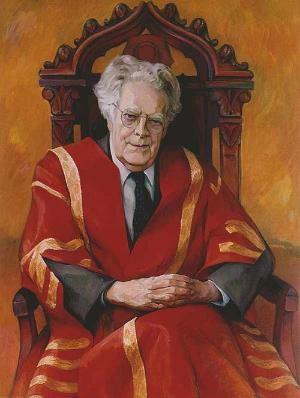
Frye in his robes as Chancellor of Victoria University.
Here’s a quote from Frye I hope academic administrators everywhere might think about.
“When anyone is considered for a deanship or a presidency, one of the first questions asked about him is, ‘How good a scholar is he?’ It sounds absurd to associate a man’s administrative ability with his specialized knowledge of a scholarly discipline, but the question is relevant none the less. If he has never been a scholar, he doesn’t know what a university is or what it stands for, and if he doesn’t know that, God help the university that gives him a responsible job.” (CW 7, 314)


